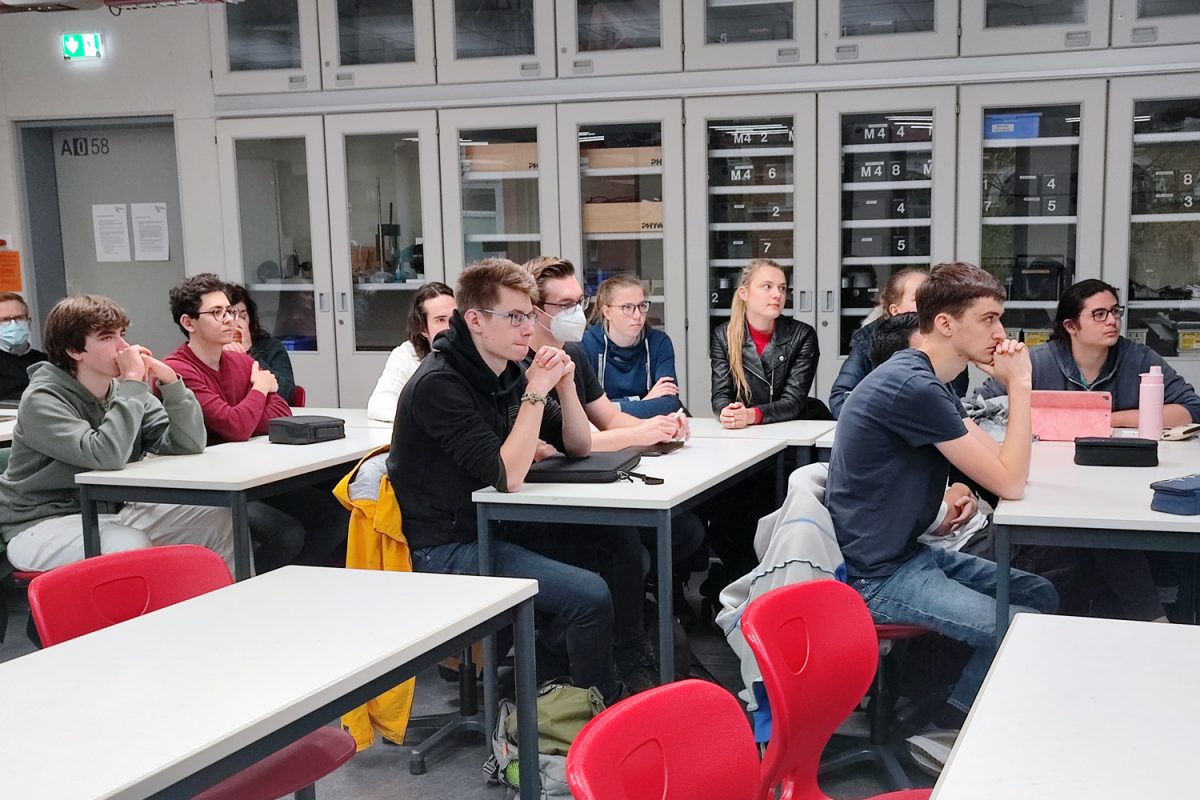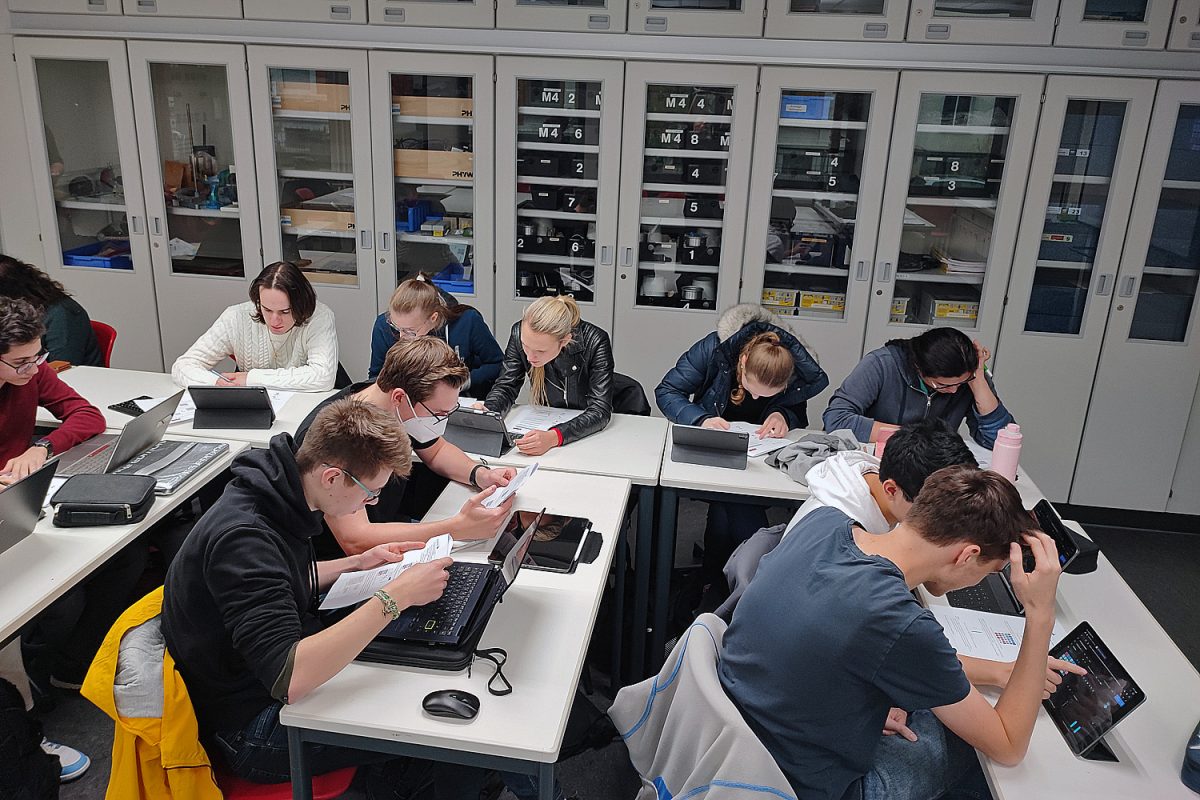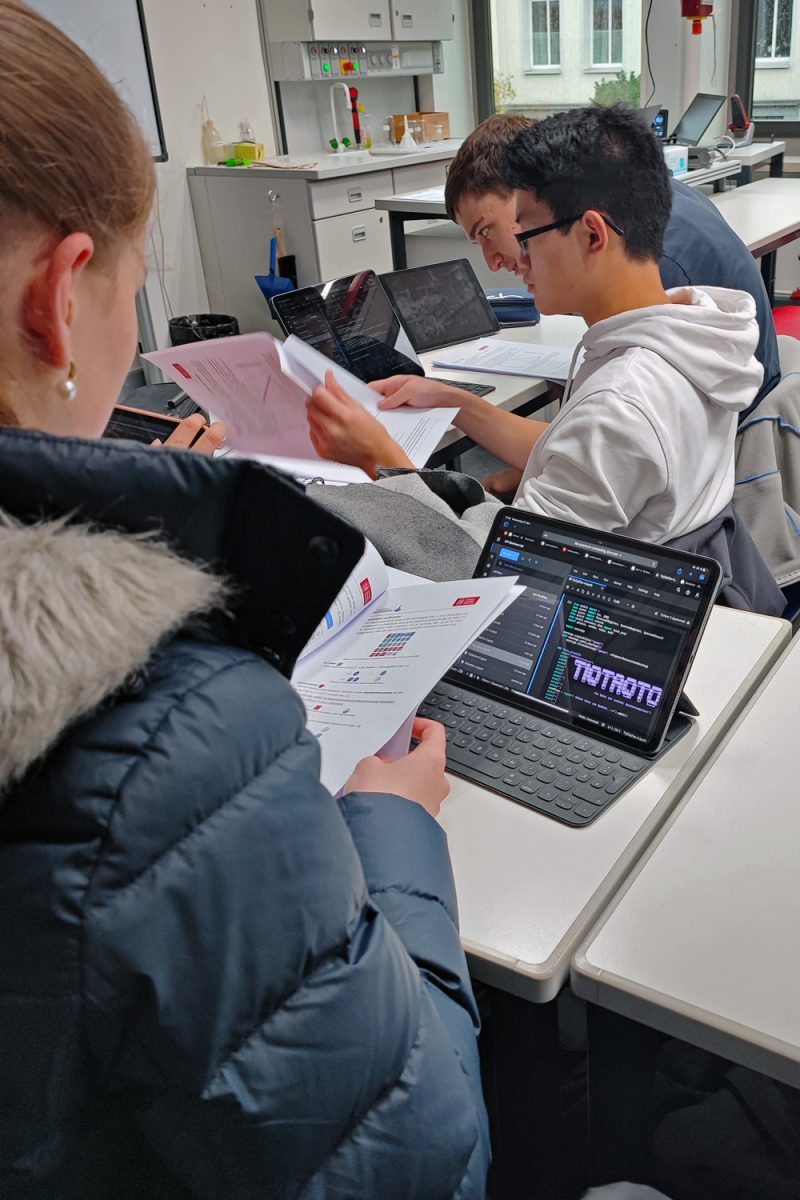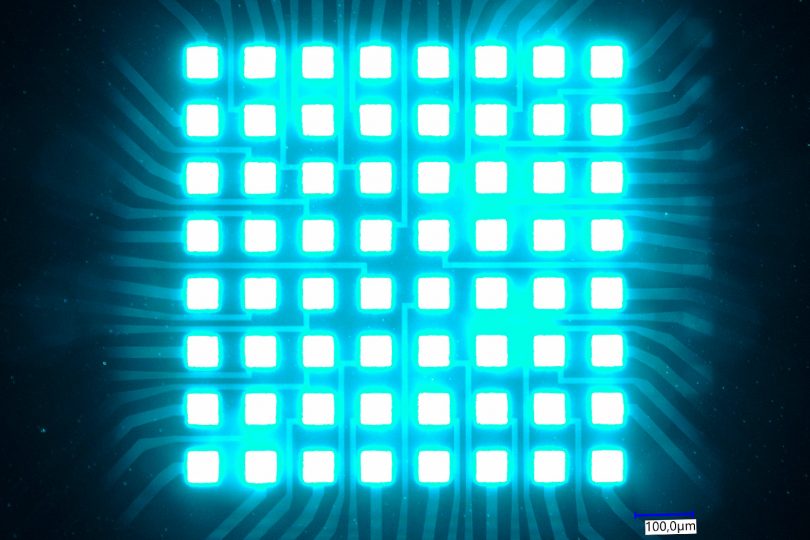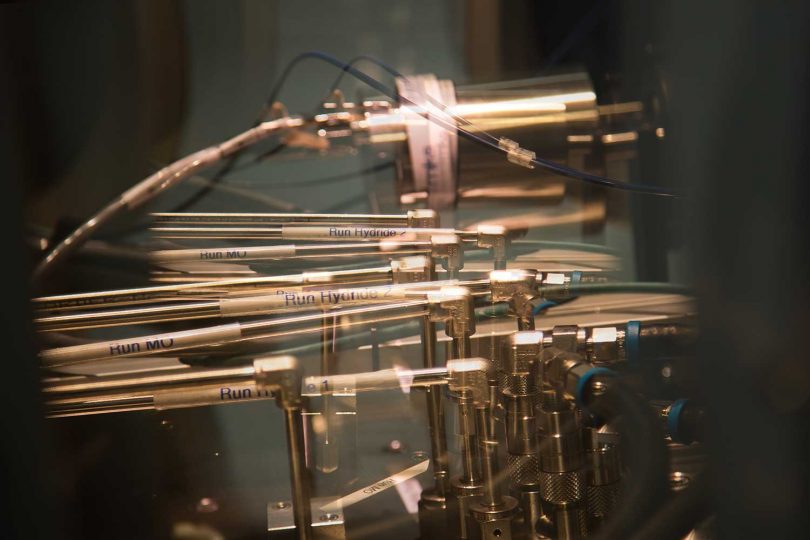Double period on quantum computing First MasterClass on quantum computers at Braunschweig's Wilhelm-Gymnasium
On 17 November, eleven pupils from the Wilhelm-Gymnasium in Braunschweig had a playful go at quantum computing. Instead of a double period of physics or computer science, they were the first to take part in the MasterClass “Quantum Computers – Computers of the Future”. In this format run by the QuantumFrontiers Cluster of Excellence at Technische Universität Braunschweig, students in grades 10 to 13 first learn basic quantum concepts before programming a cloud-based quantum computer.
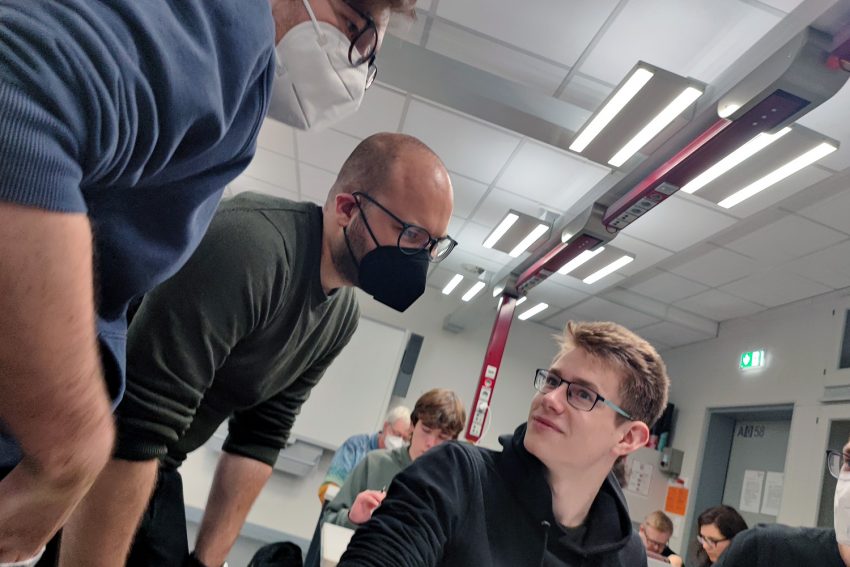
Bringing quantum expertise into the classroom: Hendrik Preuß and Tim Overwin help out in the MasterClass. Photo credit: Laurenz Kötter/TU Braunschweig
It is worthwhile to enter the quantum world early. Accordingly, topics such as the behaviour of quantum objects are now firmly anchored in the curriculum of the senior grades. In a MasterClass, eleven students in Year 13 of the Wilhelm-Gymnasium were able to delve deeper into the phenomena of quanta and, above all, quantum computing. In addition to learning about the basic functions, they also learned how to programme the new computers and then had their codes calculated by a real quantum computer.
“The course was tailored to us students in such a way that we got a good insight into the topic of quantum computing. Up to now, all I got from the media was a series of buzz words and big headlines as background. With the MasterClass, I now have a much better picture of the underlying functions,” said student Miká Müller, who takes both the physics and computer science courses at the Gymnasium.
Expertise and Quantum Tic-Tac-Toe
No less than four teachers followed the MasterClass and also tried their hand at programming the quantum computer. Marina Radewagen, teacher of the physics course, explains how the MasterClass came about: “I asked my class if they would like to do a MasterClass and if so, which one they would like to do. The choice fell very clearly on “Quantum Computing”. What makes me particularly happy is that we can meaningfully cover the topic together with the computer science course. It shows the students in both courses a possible path for the future.” On the computer science side, course teacher Oliver Nowak was pleased about the thematic excursion: “Until now, I could only touch on the topic and hint that a new field is opening up in computer science. With the MasterClass, on the other hand, we were now able to tackle the topic in detail once.”
“With the MasterClasses, we want to take up and deepen the contents of the curriculum,” says Hendrik Preuß. The university student designed the new MasterClass and conducted it together with doctoral student Tim Overwin at the Wilhelm-Gymnasium. “With this playful approach, we can also venture into complex topics, for example by using quantum tic-tac-toe to make quantum mechanics tangible. With the possibility of applying what they have learned directly on a quantum computer, the students can also gain their first practical experience.”
QuantumFrontiers MasterClasses
With the MasterClasses, scientists from the Cluster of Excellence QuantumFrontiers in Braunschweig and Hannover have been preparing research topics from the quantum world for school students since 2019. With the aim of getting young people excited about quantum physics, the offer ranges from individual teaching units for a double period in school to full-day workshops at the two universities. The MasterClasses combine the topics of the curriculum with current research. In this way, the pupils can not only experiment and learn about new areas of physics, but also gain an insight into the scientific community from the researchers. In Braunschweig, Professor Rainer Müller and Dr Azadeh Ghanbari lead and coordinate the MasterClasses, which address other quantum topics in addition to quantum computing. Further courses are in development.

